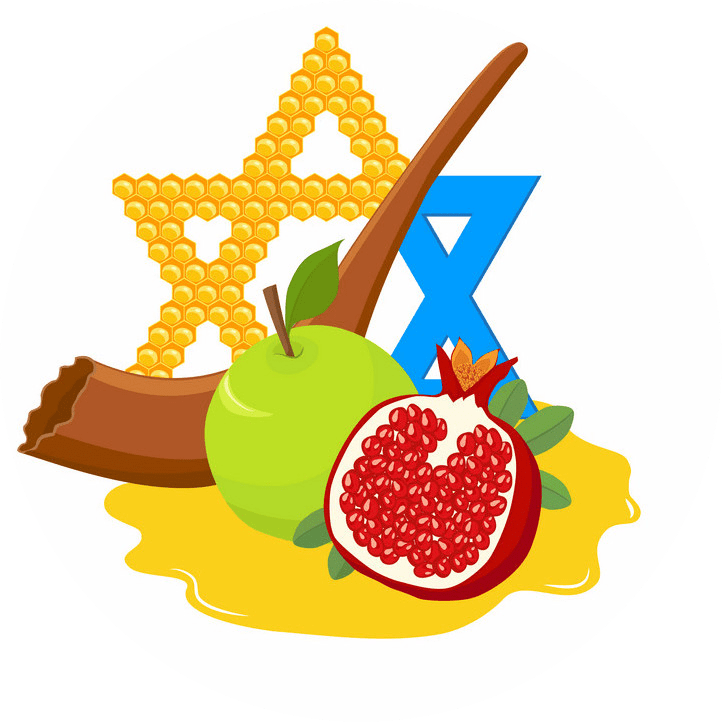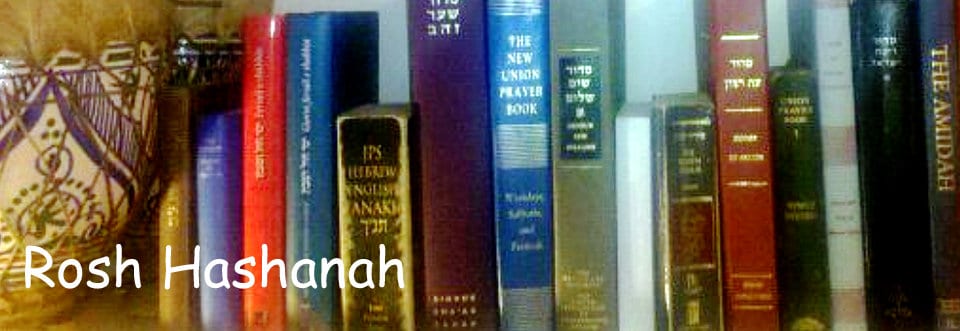Rosh Hashanah
Shavuot 
 The Appointed Times #5
The Appointed Times #5  Yom Kippur
Yom Kippur
Rosh Hashanah. Celebration of Rosh Hashanah, the Jewish New Year (ראש השנה or “Head of the Year” in Hebrew), begins each fall on the first day of Tishri and lasts for two days.
“Speak to the Israelites and say, ‘On the first day of the seventh month you are to have a day of rest, a sacred assembly announced by trumpet blasts.” Leviticus 23:24
From His Kingdom Press book, The Biblical Festivals. See links below for more information.
ROSH HASHANAH ראש השנה
“Head of the Year”

Celebration of Rosh Hashanah, the Jewish New Year (“Head of the Year” in Hebrew), begins each fall on the first day of Tishri and lasts for two days. There are four “new years” in the Jewish year, one each for people, trees, kings, and animals. Because it marks the completion of the creation of the world in Jewish oral tradition and is the new year of people and legal contracts Rosh Hashanah is considered “the head,” even though the holiday actually takes place in the seventh month on the Hebrew calendar.
The Jewish High Holy Days, or Yamim Noraim (ימים נוראים, the “Days of Awe”), start with Rosh Hashanah which is followed 10 days later by Yom Kippur, the “Day of Atonement.” The Mishnah or “oral Torah” published in the second century CE refers to Rosh Hashanah as the “Day of Judgment,” since it is believed that God opens the Book of Life on this day and begins to decide who shall live and who shall die. The days between Rosh Hashanah and Yom Kippur are viewed as an opportunity for Jews to “repent” (תשובה or teshuvah in Hebrew, which literally means “return” to God) in order to ensure a good fate.
Jewish people traditionally gather in synagogues on Rosh Hashanah for extended services that follow the liturgy of a special cyclical prayer book called a machzor (מחזור or “cycle”) used during the Days of Awe. At specific times throughout the service, a shofar (שופר or ram’s horn) is blown. The mitzvah (מצוה or commandment) to hear the shofar, a literal and spiritual wake-up call, is special to this time of year.
Jewish New Year is the only holiday that is observed for two days by all Jews (other holidays are observed for just one day within the Land of Israel) as it is also the only major holiday that falls on a new moon.
A common greeting on Rosh Hashanah is shanah tovah u’metukah (שנה טובה ומתוקה), Hebrew for “a good and sweet new year.” Many sweet foods traditional for Rosh Hashanah – apples and honey, raisin challah, honey cake and pomegranate – are eaten, in part, for this reason.
